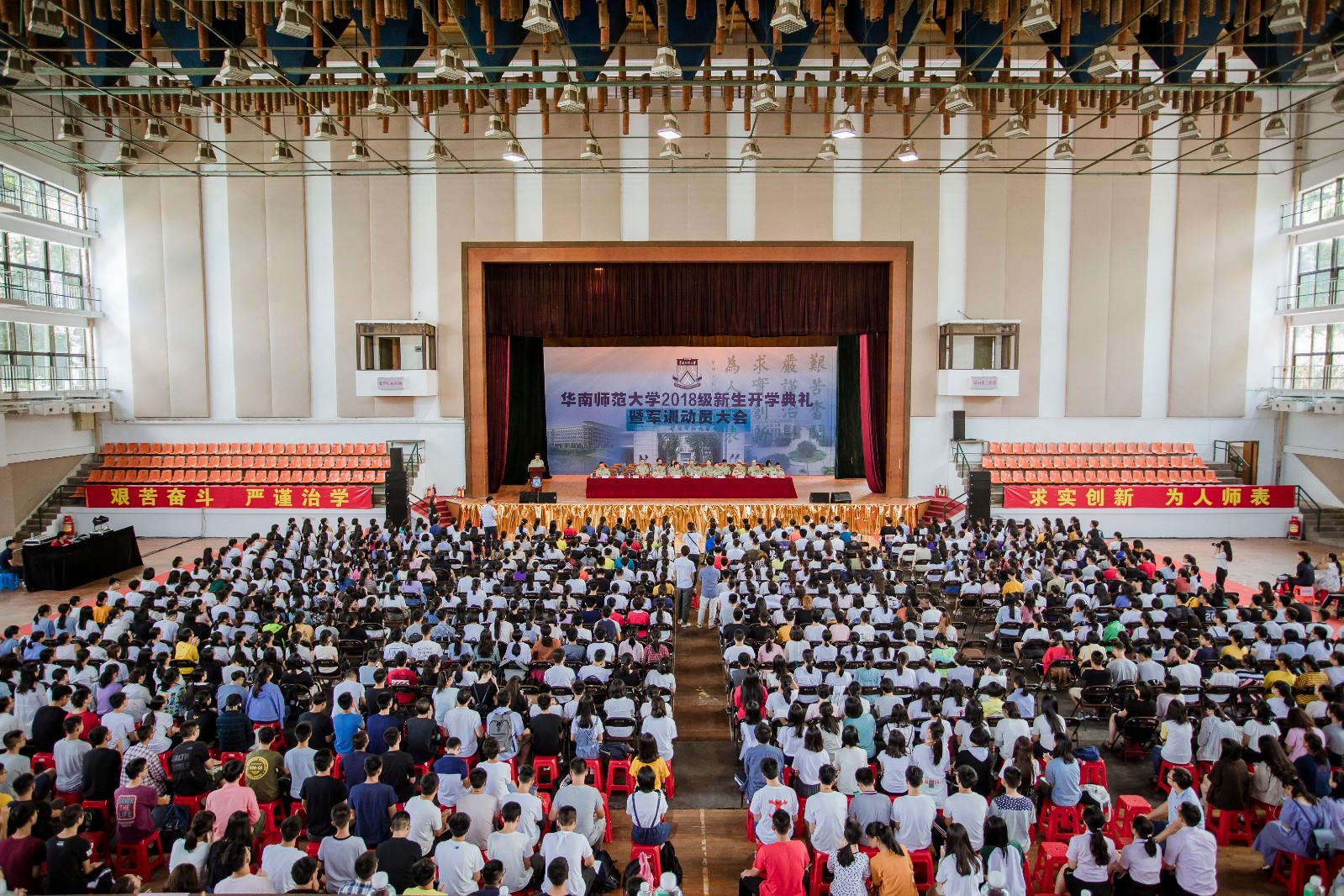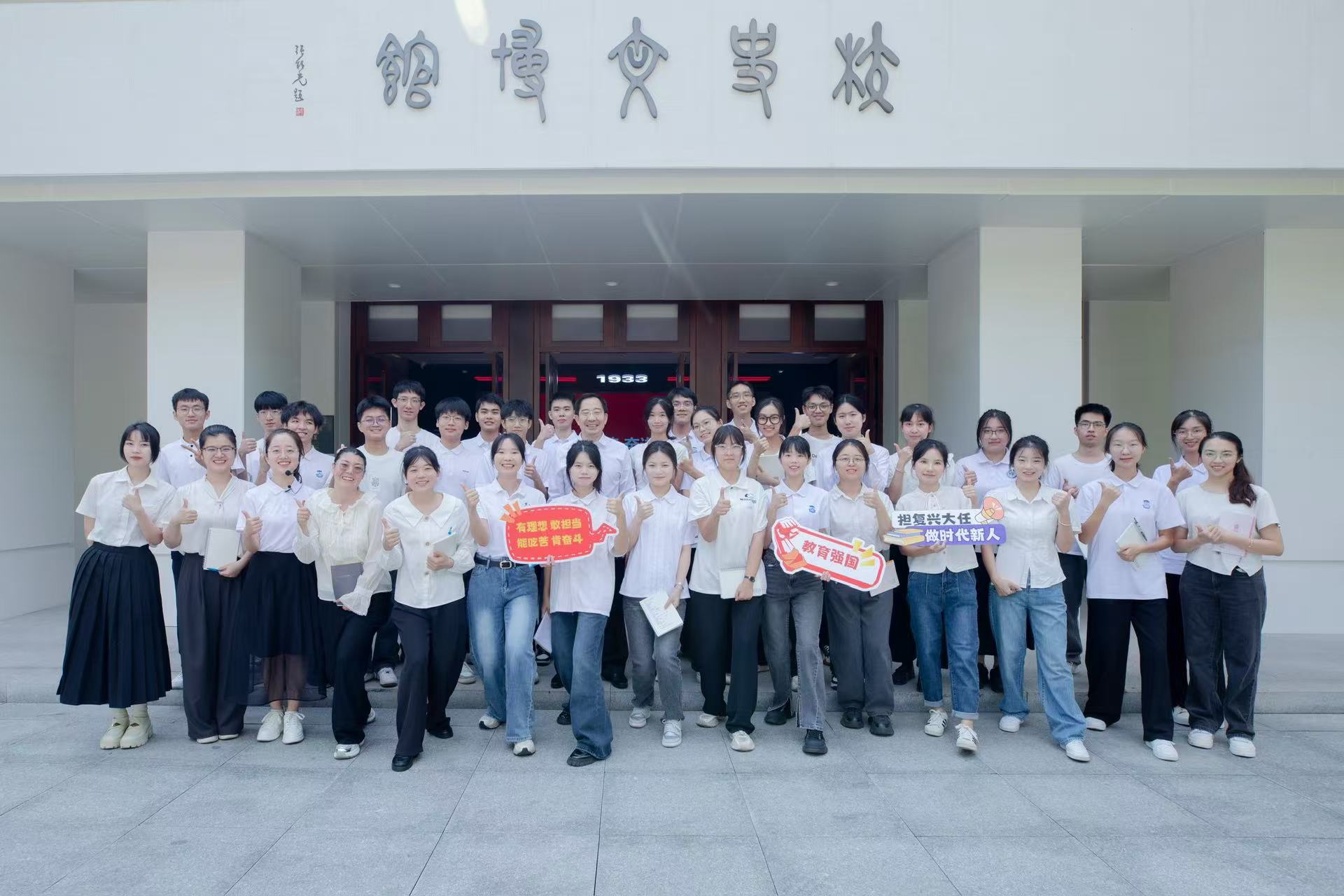
Likes
Secretary of the CPC SCNU Committee Wang Binwei delivered his first lecture on ideological and political education at the school history museum on the Shipai campus on October 21. The theme of the lecture is to encourage students to look back to SCNU's original aspirations and experience and forge ahead on the new journey of building a great modern socialist country.
In the spirit of the 20th Central Committee of the Communist Party of China and the national education conference, Wang Binwei lectured the student representatives interactively, using situational experience to relate the history, current situation, and future expectations of SCNU.
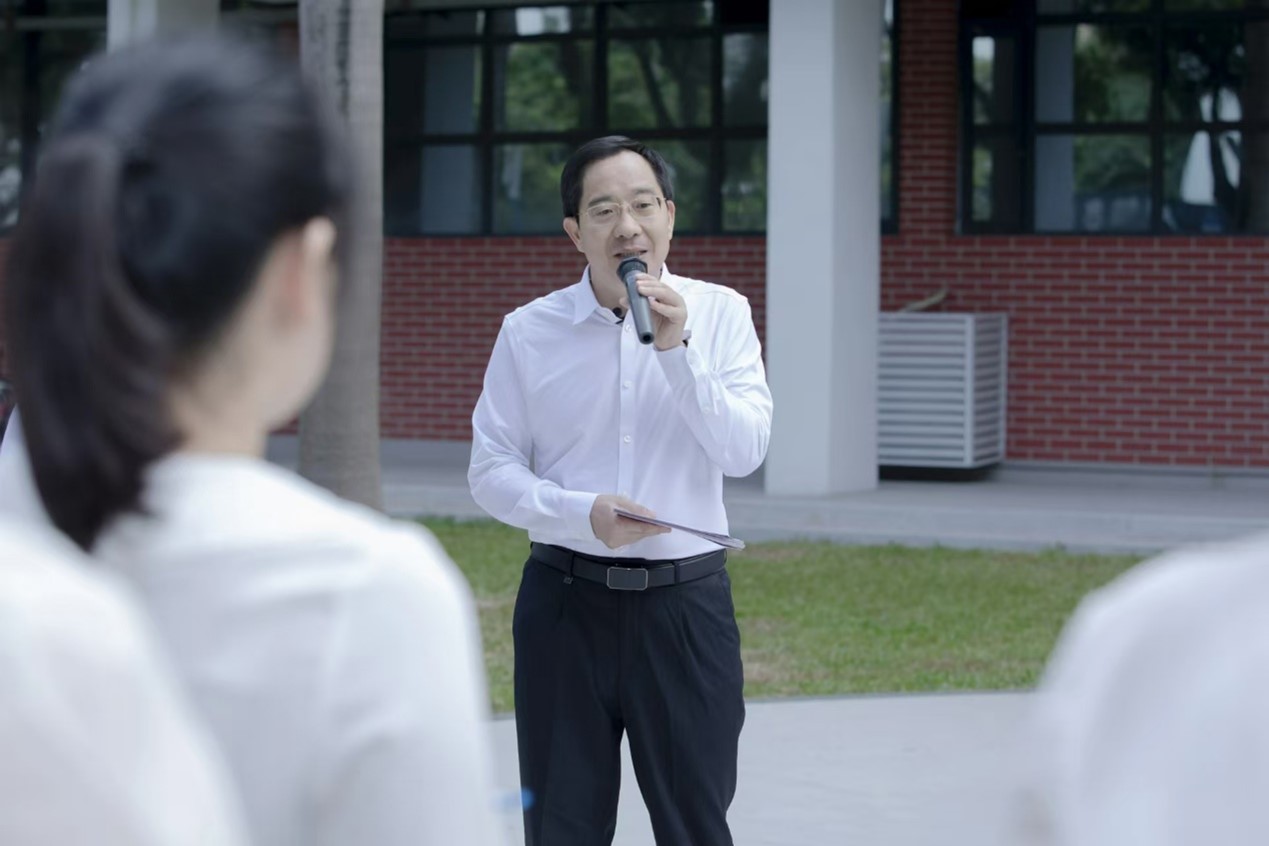
Wang Binwei delivers his first lecture to the students.
"In today's lecture, we will draw the strength of endeavour from the history of SCNU." Standing in front of the bronze statue of Mr. Lin Liru, the founder of Guangdong Provincial Xiangqin Normal College in 1933, the precursor of South China Normal University, Wang began by explaining the purpose and significance of this lecture on ideological and political education. He stated that only through learning can we understand; only with understanding can we truly love, and only with love can we devote ourselves. Only through learning and understanding the past, present, and future of SCNU, can the students become true SCNUers, stand firm in their ideals, and establish the belief in serving the country.
Wang took the students to visit the school history museum. In the middle hall of the first floor, Wang briefly introduced the historical timeline of SCNU. He pointed out that the history of SCNU can be summarized as "one source and nine veins". "One source" means the Guangdong Provincial Xiangqin Normal College, founded in 1933, which was the start of higher education of what later became SCNU. "Nine veins" refers to the nine colleges and departments that were successively founded between 1951 and 1953, after the establishment of the People's Republic of China. In 1982, the college was renamed South China Normal University (SCNU).
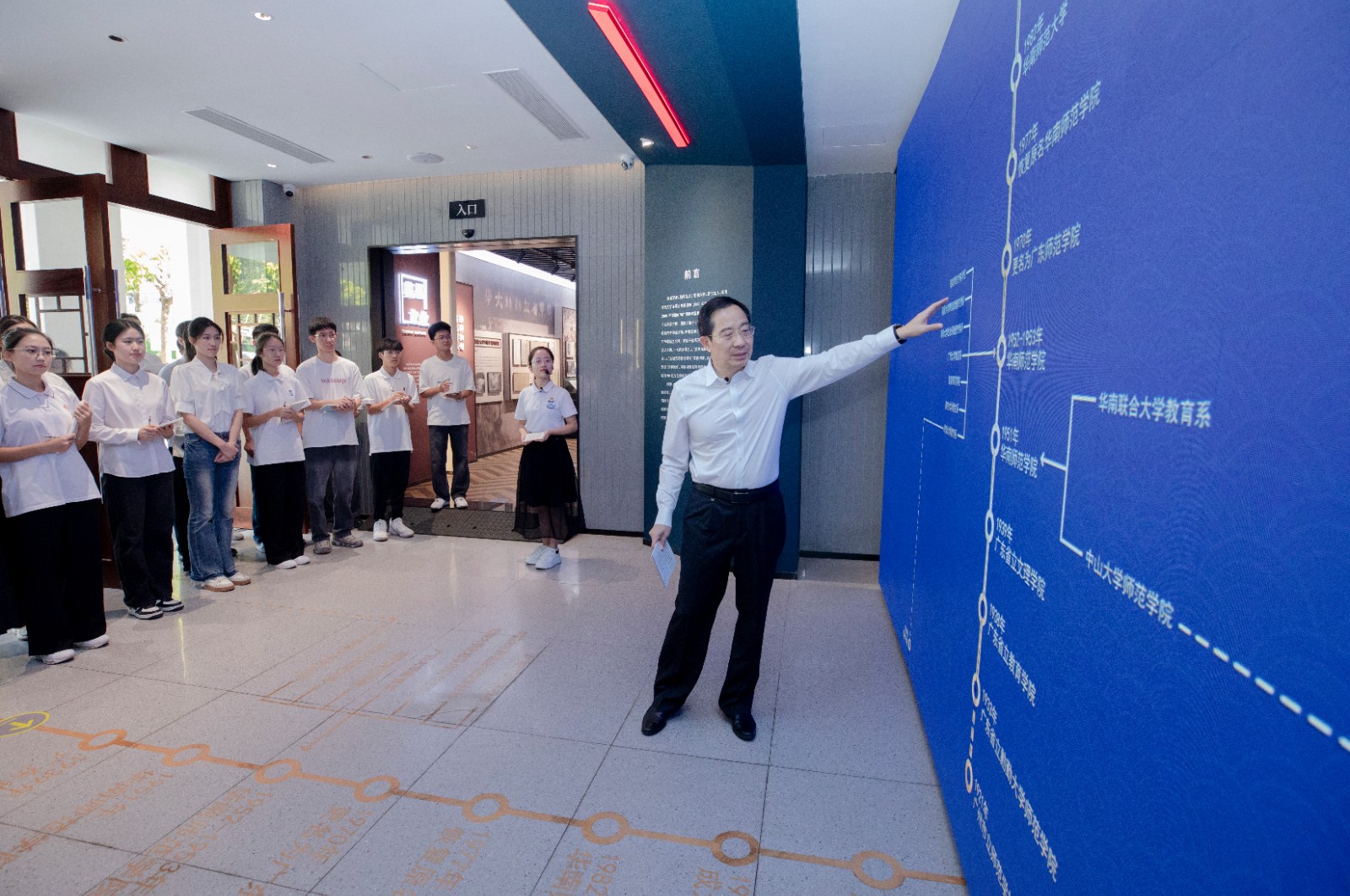
Wang introduces the historical timeline of SCNU to the students.
In the exhibition hall of the Past SCNU, student Tong Ziwei introduced the development of SCNU in chronological order. During the visit, Wang shared the historical stories with the students and encouraged them to earnestly study the history of SCNU, transmit the spirit of SCNU's motto and respond to the calling of the era. He also called on students to improve moral integrity, seek the truth, concentrate on learning, equip themselves with skills, and contribute their youthful wisdom and strength to the advancement of Chinese modernization.
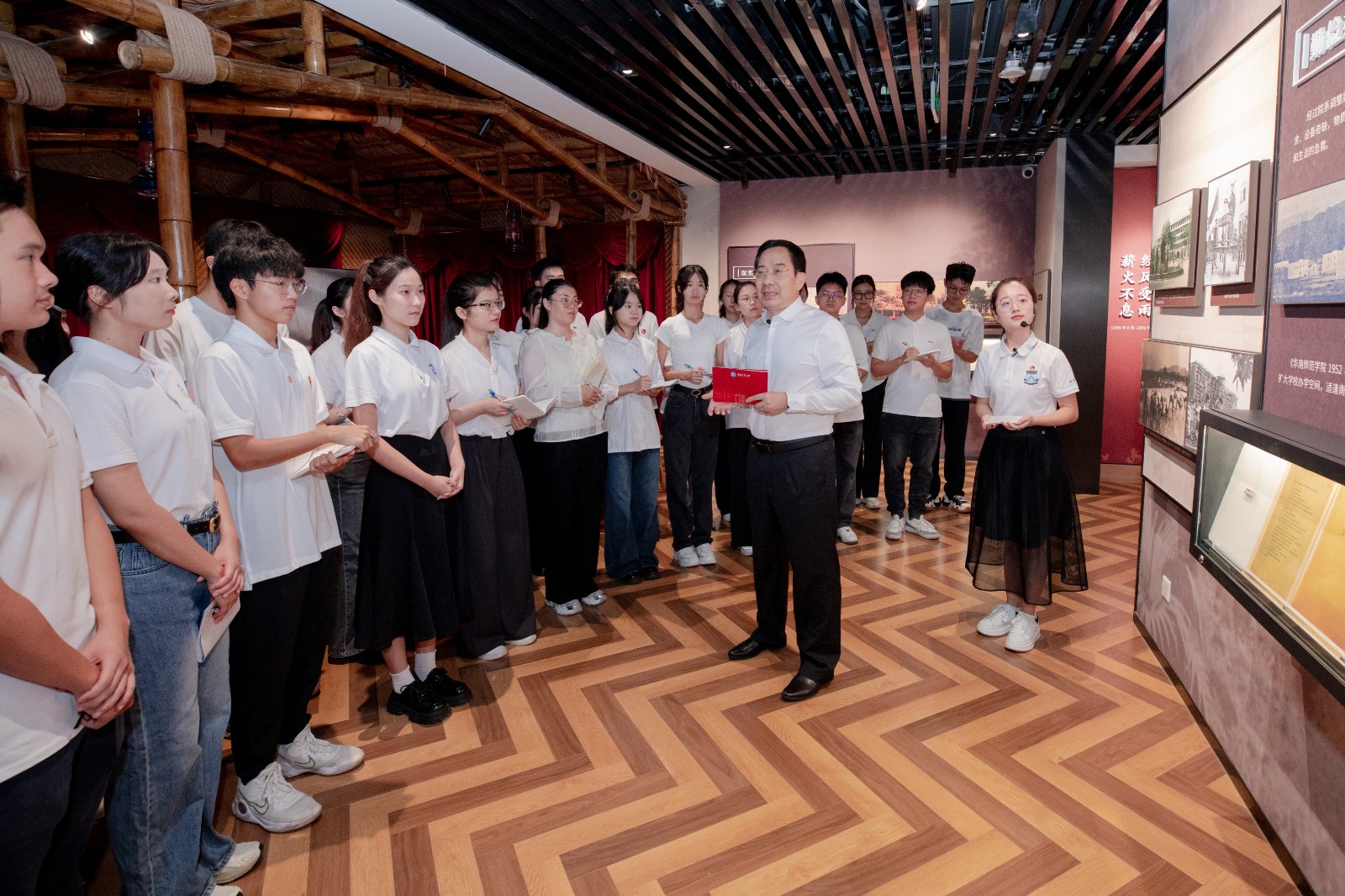
Wang encourages students with the spirit of pioneers.
Three student representatives shared the stories of SCNU pioneers. After listening to the stories, Wang added that SCNU was the first to provide mobile tutorship in mountainous and remote areas in the countryside and the first to carry out training-on-contract programs. SCNU was also the first to launch training programs in Hong Kong and Macao, the first to propose the term "Tertiary Industry Economics", the first to create the major of Audiovisual Education, and the first to establish the Laboratory of Laser Life Science. These "firsts" are the vivid embodiment of SCNU's motto "Seeking truth from facts with innovation".
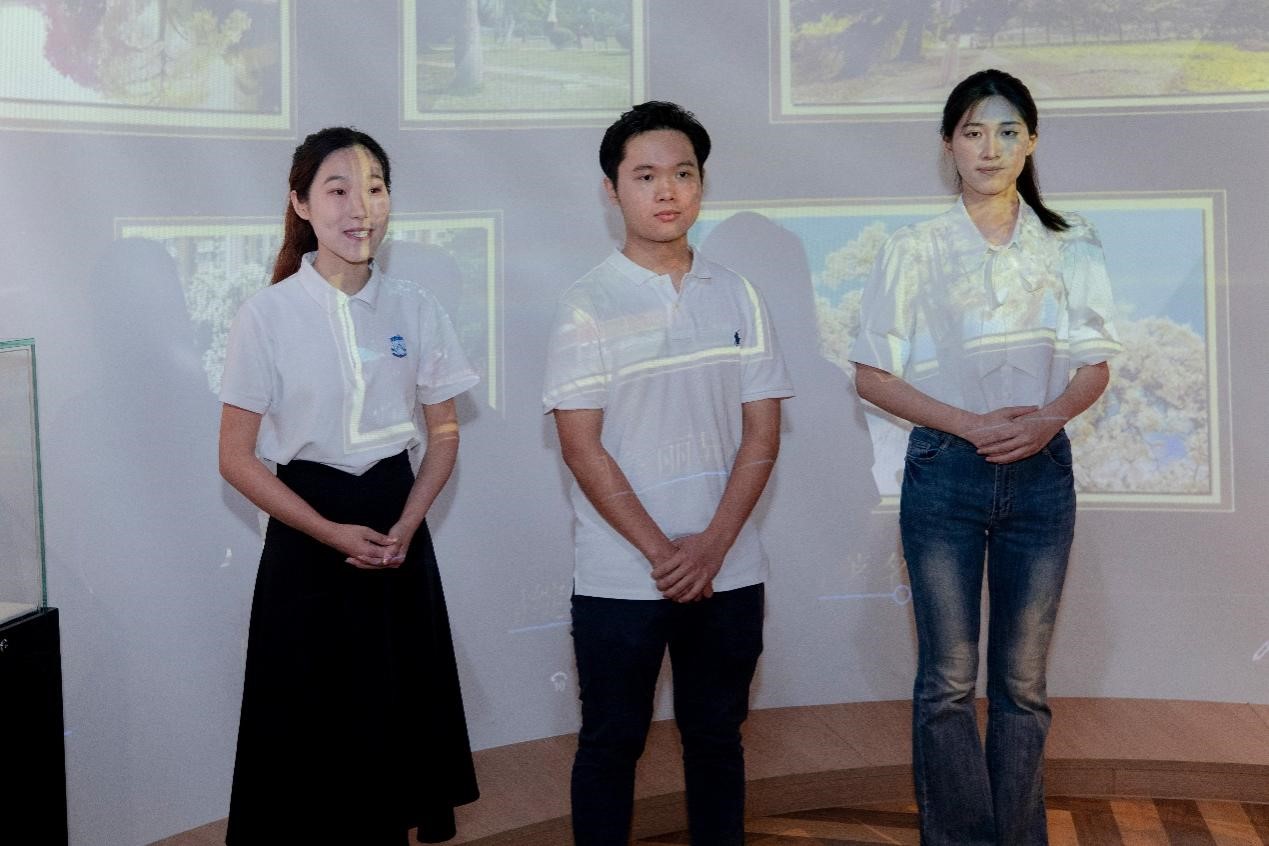
Three student representatives share the stories of SCNU pioneers.
In the exhibition hall of the Present SCNU, Wang guided the students to explore the current situation and achievements of SCNU through the data and charts on display. Wang said that the ideological and political education is a tradition of SCNU. In 2016, SCNU, as one of five universities selected, reported its advanced experience in on-line ideological and political education at the National College Ideological and Political Work Conference. In recent years, SCNU has launched a series of ideological and political education activities, such as "Youth Studio" "SCNU Role Model" "Music Salon" and "Scholars' Afternoon Tea", which are popular among students. He hopes that students can play an active role in these activities, maintain positive energy, and radiate the vitality of youth.
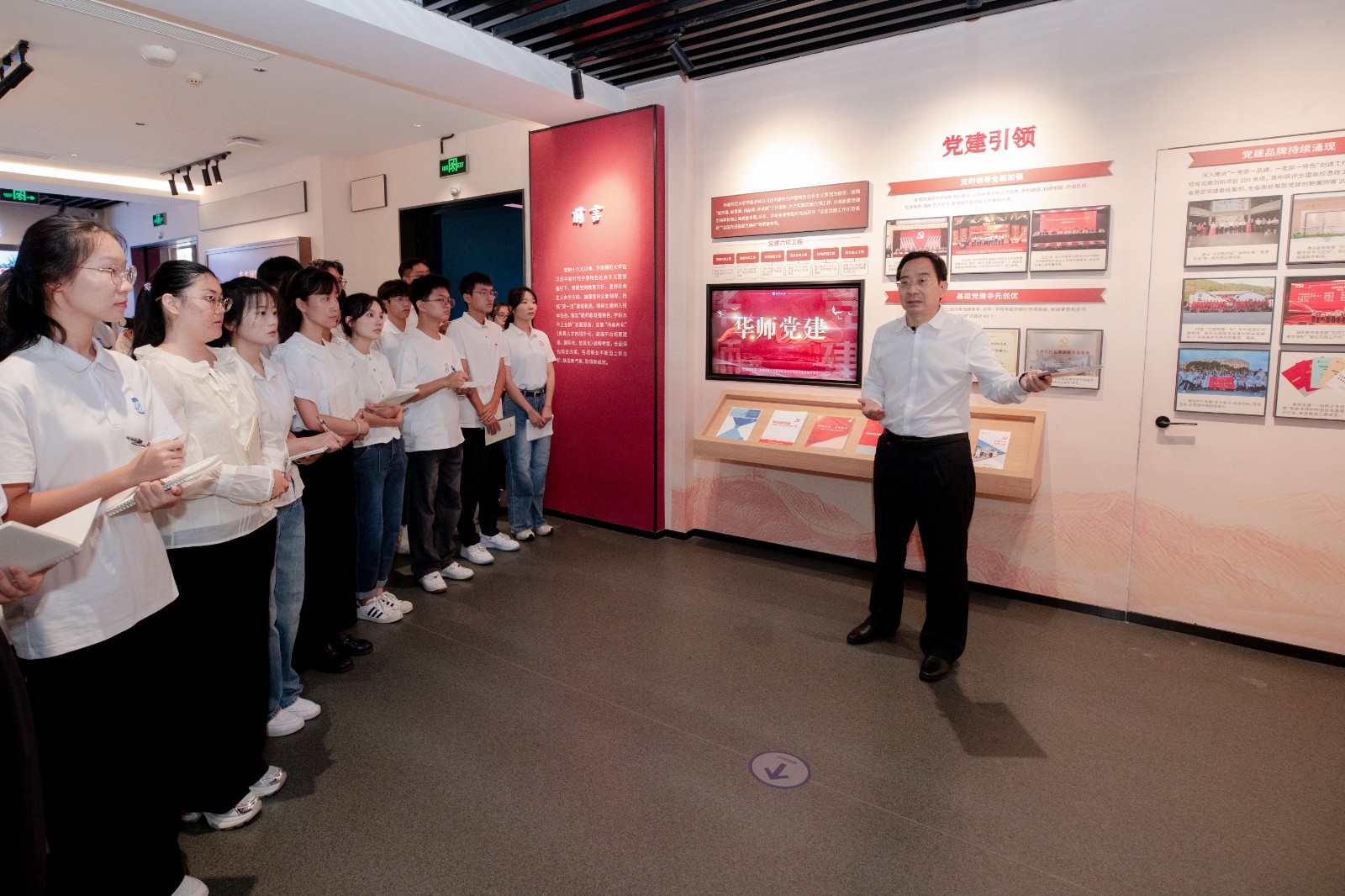
Wang introduces the current situation of SCNU.
Besides, Wang gave the students an overview of SCNU's foreign exchange and cooperation work. He pointed out that SCNU has proactively followed the national strategy of opening up in education and regional development needs by establishing a first-class system for international exchange and cooperation. In particular, the cooperation with Hong Kong and Macao in running schools has achieved significant results and a lasting influence. In the future, SCNU will continue to deepen education cooperation with Hong Kong and Macao and accelerate the promotion of teacher's the professional development community in the Greater Bay Area.
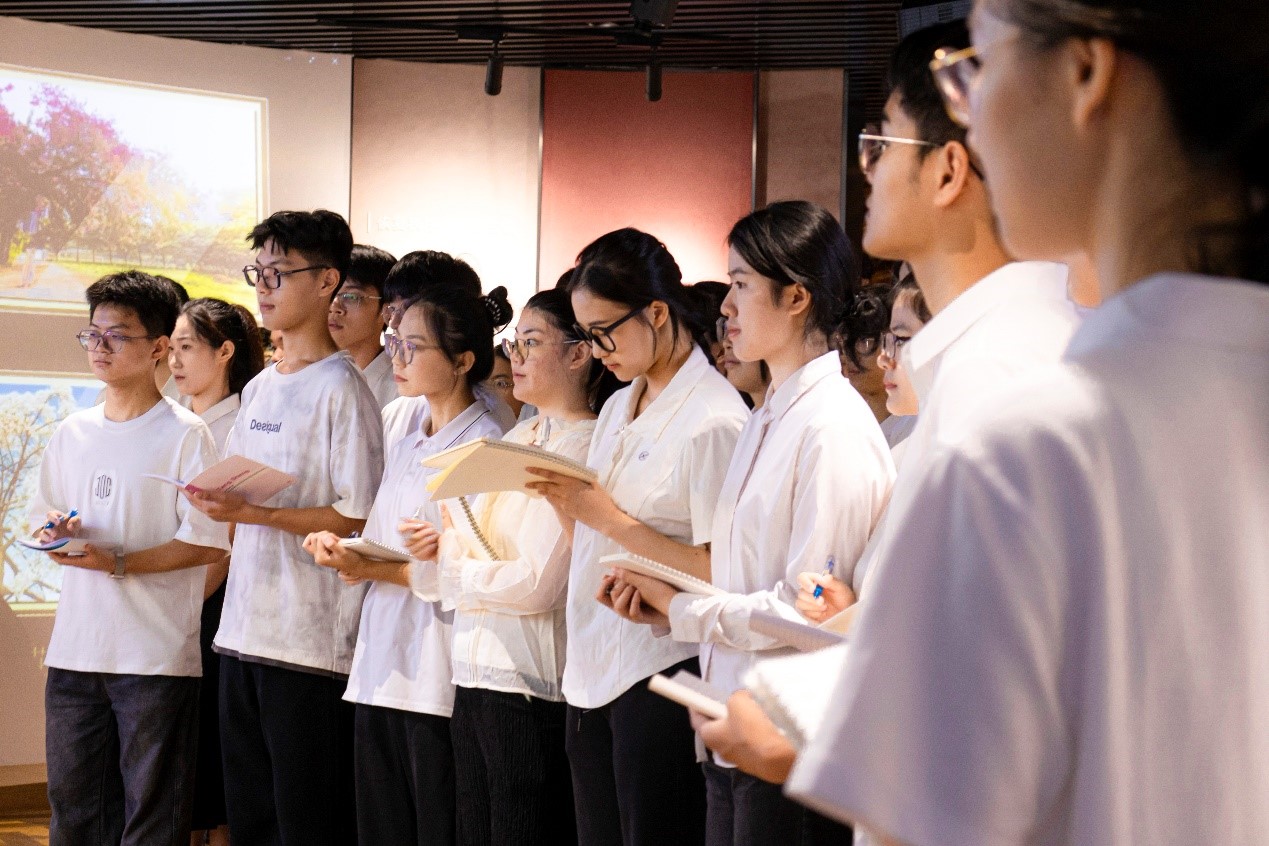
Students listen attentively to the lecture.
In the exhibition hall of Future SCNU, Wang presented SCNU's "1238" development vision, which is based on the spirit of the 20th Central Committee of the Communist Party of China and the specific "1310" plan outlined by the provincial party committee. Wang introduced, on the new journey, SCNU proposes its "1238" development vision: to focus on "One goal" , implement a "Two-step" strategic plan, unleash the "Three major" driving forces of innovation, reform and opening-up to accelerate the building of "Eight first-class' systems". By 2035, SCNU aims to become a world-class teacher training university with comprehensive strength at the forefront of the world, and by the middle of the century, a comprehensive, innovative world-class university with distinctive characteristics of teacher education .
Wang also interacted with the students and answered their questions. When discussing talent cultivation, a common concern among students, Wang said that with the development of new technologies such as the Internet and Artificial Intelligence (AI), society has a higher demand for innovative talents. To meet the needs for talent cultivation in the new era, SCNU continues to innovate the mode of talent cultivation, such as establishing "Education+" programs and deepening "AI+" talent cultivation. SCNU also implements an integrated system of undergraduate, postgraduate, and doctoral talent cultivation to guarantee the growth and development of the students. He hoped that the students could proactively meet the demands of the era and society, improve their professional studies, and learn more relevant lessons at the same time.
At last, Wang listened to the speeches of the student representatives. Wang stressed, that over the past 91 years, SCNU has marched in the same direction as the times, following the paths of education to save the country, serve the country, and make the country prosper. Now, SCNU has embarked on a new journey of education to strengthen the country. The baton of history is passed to the students. As a SCNUer in the new era, Wang hoped that everyone would carry forward the will of our predecessors, build on our revolutionary legacy, care about our family and country, and improve our skills. He encouraged students to continuously enhance their learning, thinking, acting and leadership skills, strive to be diligent learners, nation-builders, innovative pioneers, and responsible individuals, making efforts to be better persons when devoting themselves to society.
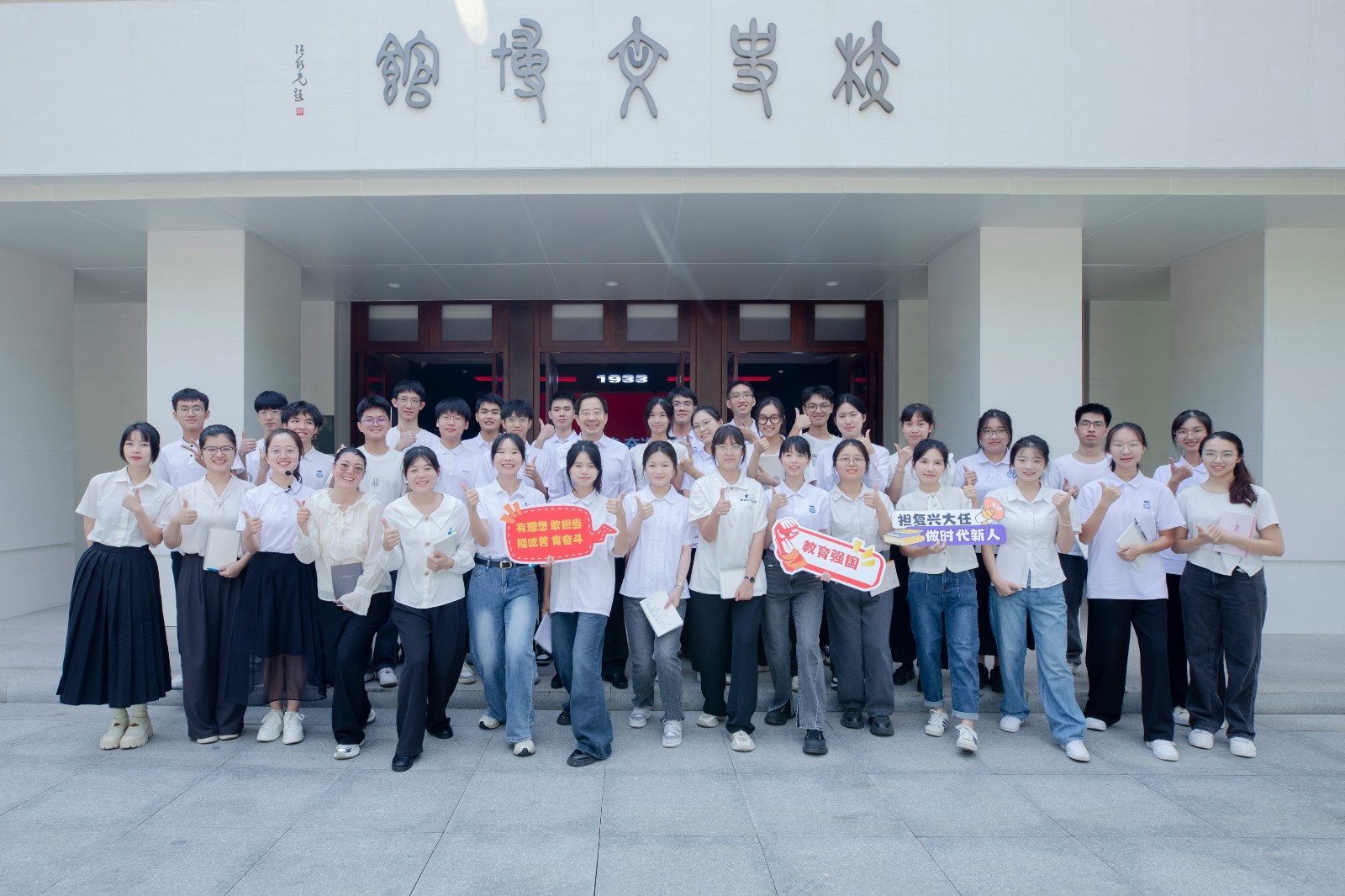
Wang Binwei and the student representatives at the school history museum.
Source from SCNU News Center
Translated by Ye Shuokun, Liao Zhanting, Zhu Ying
Proofread by Edwin Baak
Edited by Li Jianru
What to read next:


